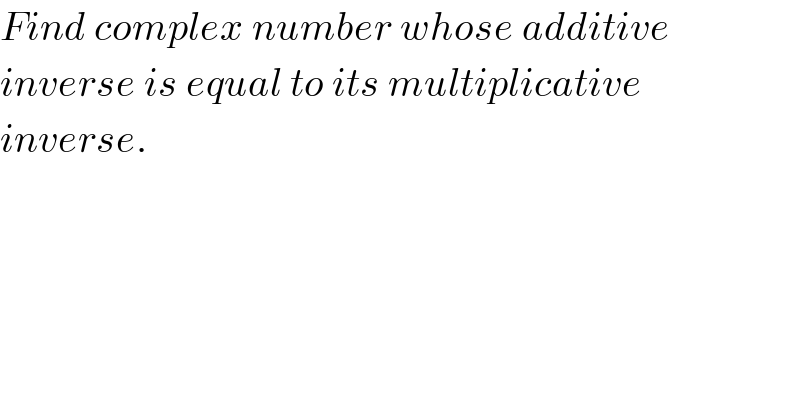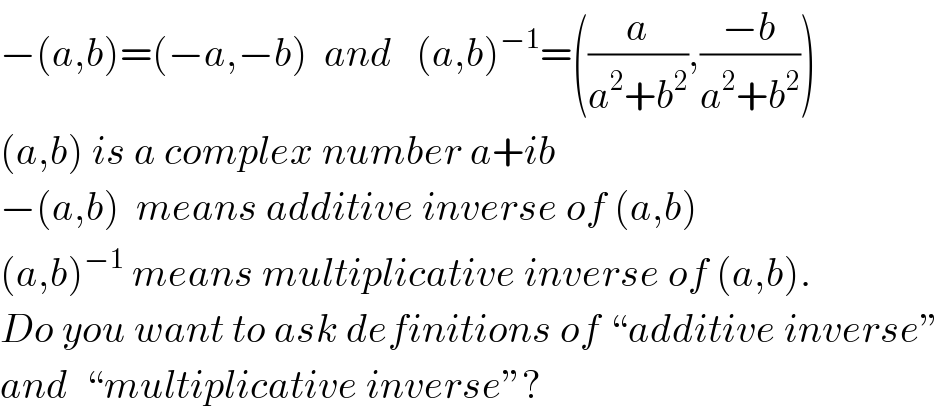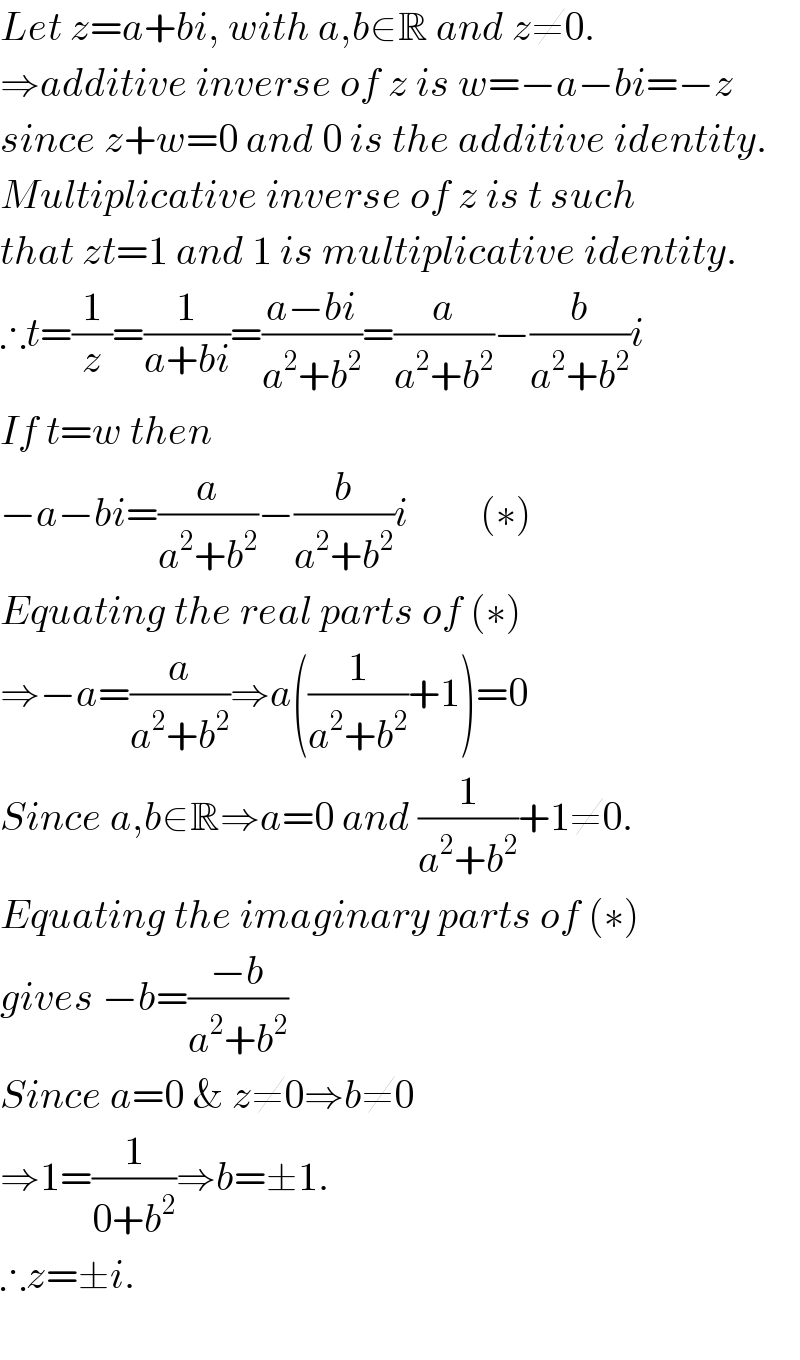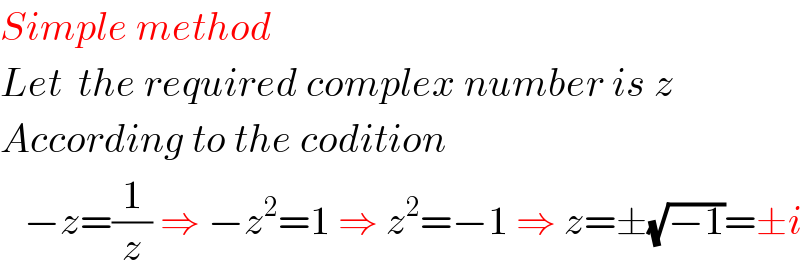Question Number 6512 by Rasheed Soomro last updated on 30/Jun/16

Commented by Temp last updated on 30/Jun/16

Commented by Rasheed Soomro last updated on 30/Jun/16

Answered by Yozzii last updated on 30/Jun/16

Commented by Rasheed Soomro last updated on 30/Jun/16

Answered by Rasheed Soomro last updated on 01/Jul/16

